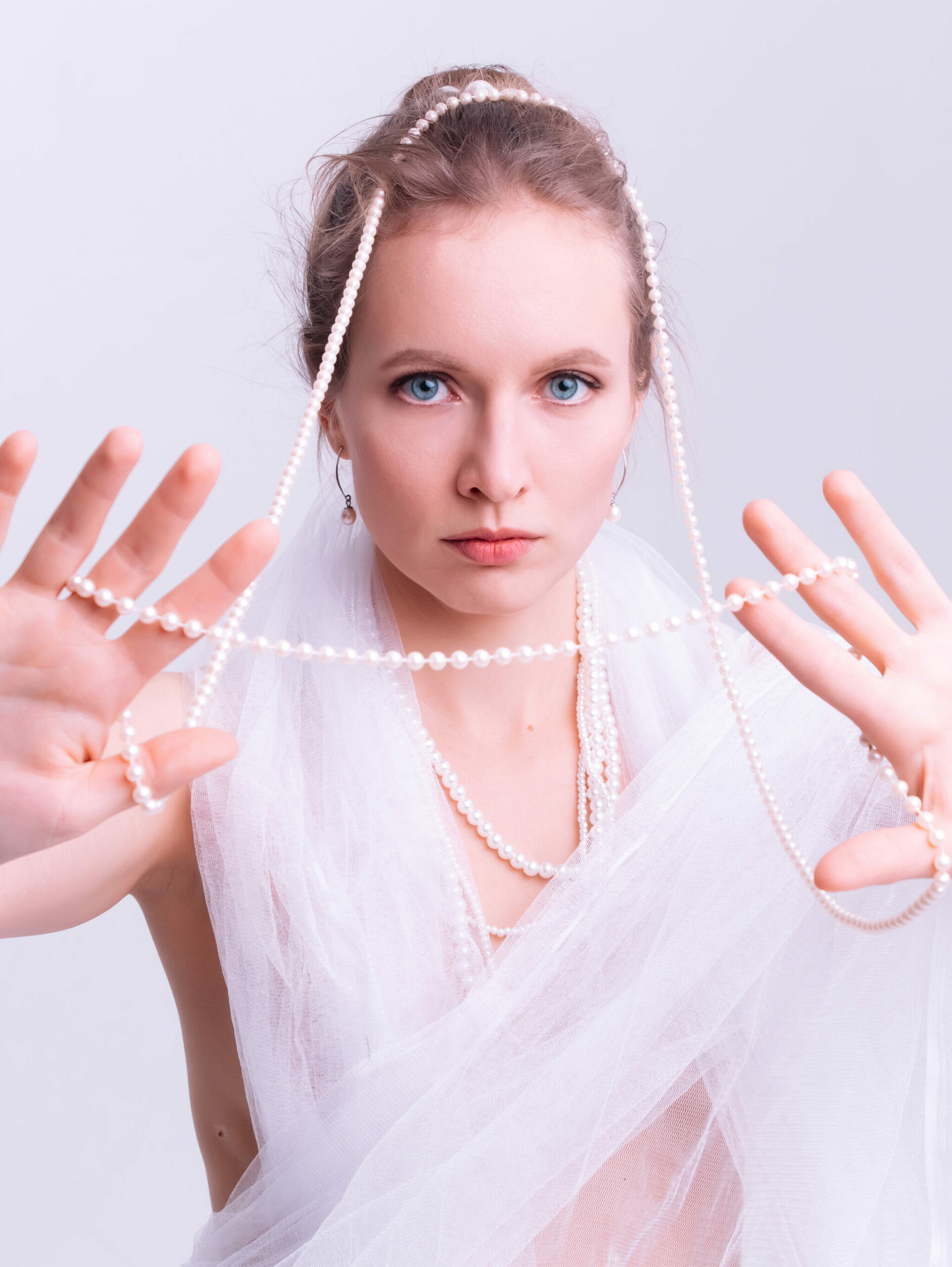Falstaff
—
![]()
“But that the valiant knight meets an opponent in Alyona Rostovskaya who steals the show from him both in acting and singing – Lučić could not have imagined this in his wildest dreams. My dear, what a soprano! Sparkling, vibrant, natural, virtuosic, light and airy in the high register, cultivated and concise: One doesn’t need to be a prophet to predict a brilliant career for this singer far beyond the Hessian state capital. Rostovskaya is the bright shining star of the evening, making even the beautiful, rounded voices of Fleuranne Brockway (Meg Page) and Anastasia Taratorkina (Nannetta) pale in comparison.”
Jürgen Otten, Opernwelt, 07.2024

Der Freischütz
—
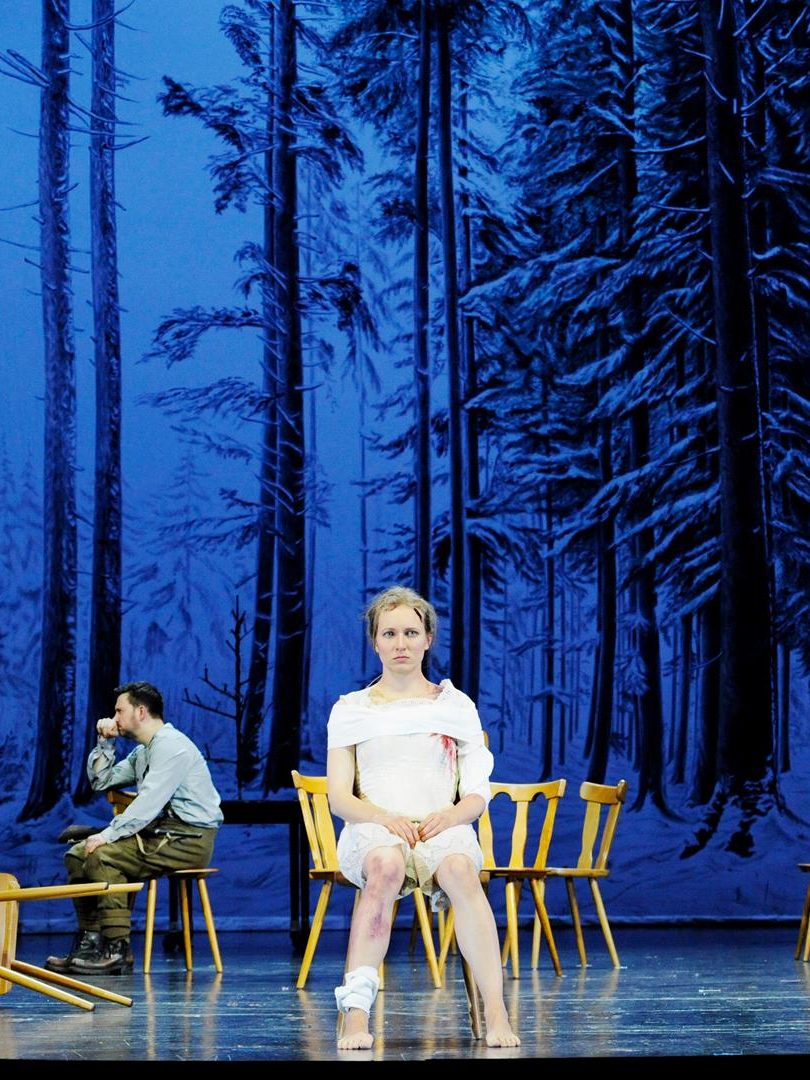
![]()
[…] pure vocal happiness emanates from the two soloists, Alyona Rostovskaya as Agathe and Anastasiya Taratorkina as Ännchen, who shape their arias as naturally as if they were romantic art songs.
Axel Zibulski, FAZ, 22.03.2024
![]()
As Agathe, Alyona Rostovskaya has the appropriate lyrical-dramatic structure for the role, but can also reduce her voice ‘quietly, softly, piously’ to a cautious intimacy.
Michael Demel, Der Opernfreund, 23.03.2024
![]()
Alyona Rostovskaya as Agathe convinces with the sound of her youthful, lyrical soprano, with subtleties of phrasing and her flowing legato. Her silver-toned treble potential makes her the ideal representative of the role. In the duet with Ännchen, she sings wonderfully delicately and fragile, but also brings the necessary vocal power, sensitive and touching ‘O how bright the golden stars, with how pure lustre they glow!’ Agathe’s spiritual purity blossoms in her heartfelt aria scene before going to bed, ‘How near slumber came to me before I saw it… Softly, softly, piously!’.
Ingrid Freiberg, ioco, 27.03.2024
![]()
[…] Alyona Rostovskaya’s beautifully timbred, soulful Agathe […]
Volker Milch, Wiesbadener Kurier, 18.03.2024
Liederabende
—
![]()
(Alyona Rostovskaya) offers one highlight after another. As Tosca, she fills the room with passion from the very first note, literally turning the foyer into a ‘big house’. As Musetta from ‘La Bohème’, she flirts with Helmut Krausser, who looks coyly to the floor, and as Cio-Cio San from ‘Madama Butterfly’, she is the great tragedienne. And Mimì, Manon, Liù and Doretta from ‘La Rondine’ also appear on stage in the course of the evening. Rostovskaya conjures up goosebumps for the audience in the forte and piano.
Anja Baumgart-Pietsch, Wiesbadener Kurier, 16.05.2024
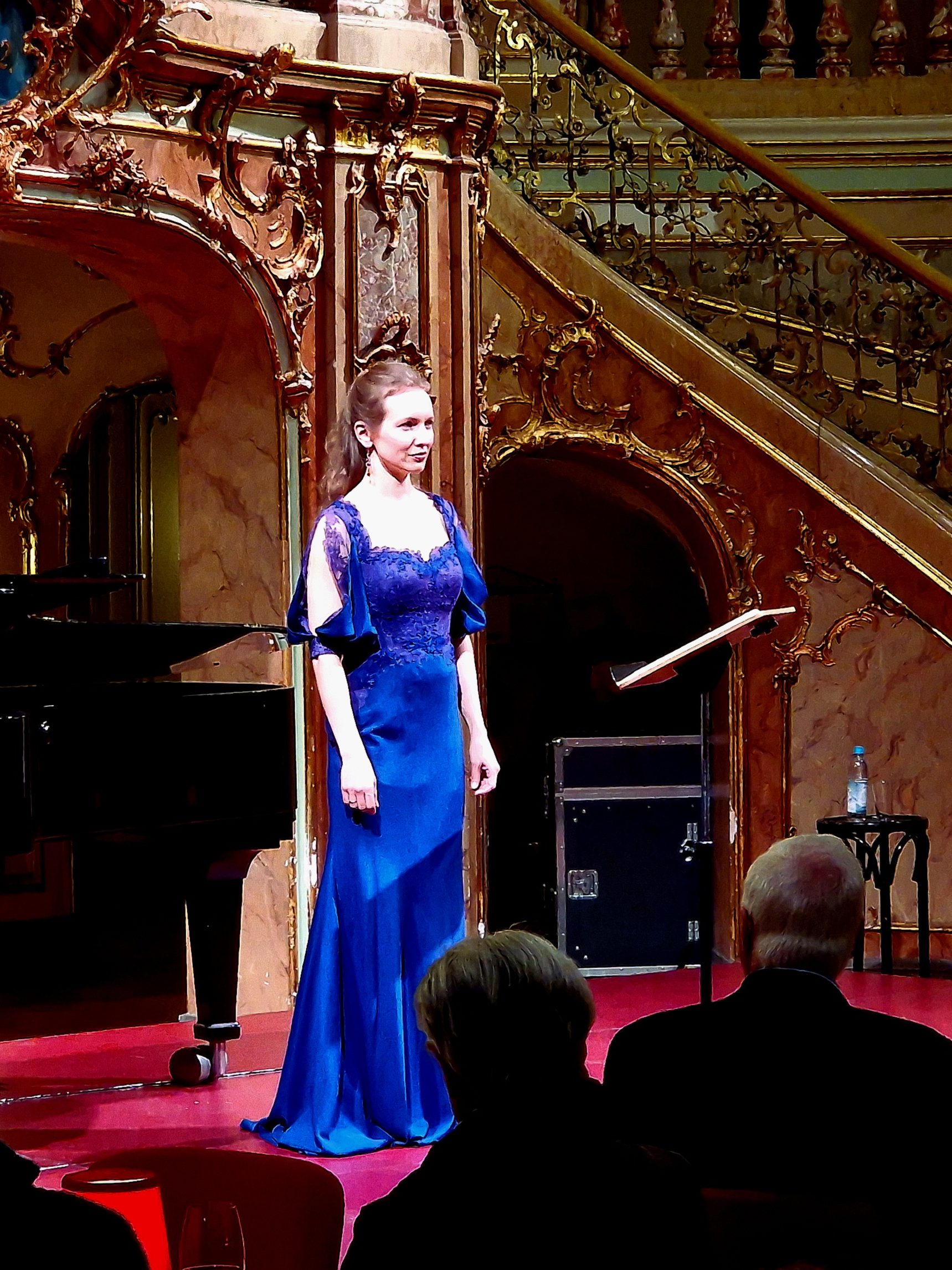
Rusalka
—
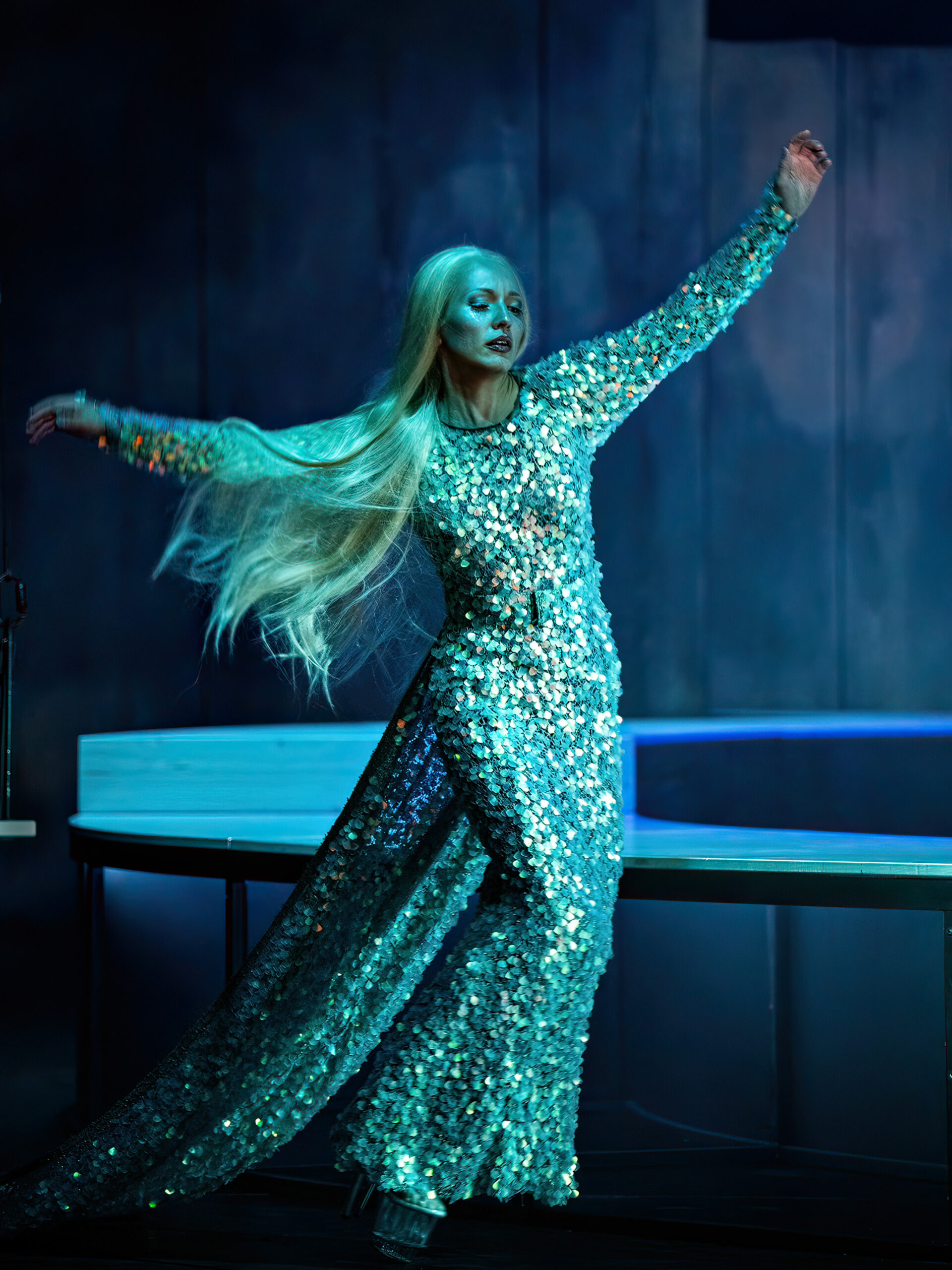
![]()
Alyona Rostovskaya embodies the furious determination with which Rusalka fights for her transformation just as grandly as the ethereal sides of the water creature. In its intensity and complexity, this title role seems to be made for the young Russian soprano. The facets of her voice, which can sound as delicate as it is dramatically explosive, are already in a class of their own – in combination with her acting presence, this role debut is simply breathtaking.
Silvia Adler, Opernwelt
![]()
[…] the casting of the lyric soprano Alyona Rostovskaya is a stroke of luck, because in her performance she combines multifaceted expression with vocal brilliance, including dramatic top notes.
Eckhard Britsch, Mannheimer Morgen
![]()
Alyona Rostovskaya conveys the vulnerability of Rusalka, who believes so strongly in her love. With her slender, straightforward soprano voice, which blossoms beautifully in the high register, she is vocally and visually the ideal cast for the title role.
Nike Luber, Rhein-Neckar Zeitung
La Bohème
—
![]()
The Mimì of Alyona Rostovskaya is a discovery.
There are even some veritable vocal discoveries to marvel at. In particular, this is the Mimì of Alyona Rostovskaya. The young Russian, who already sang Tchaikovsky’s Tatjana in her home country at the beginning of her career, has a grace as Puccini’s femme fragile that touches quite directly. Her noble soprano exudes a delicate silver sheen, possesses a delicate natural vibrato – and goes very much to the heart in her singing effect, as the so legendary lyric role predecessors Mirella Freni or Miriam Gauci were once able to do. The enormously concentrated presence of this graceful appearance has something genuinely magical about it.
Peter Krause, Concerti
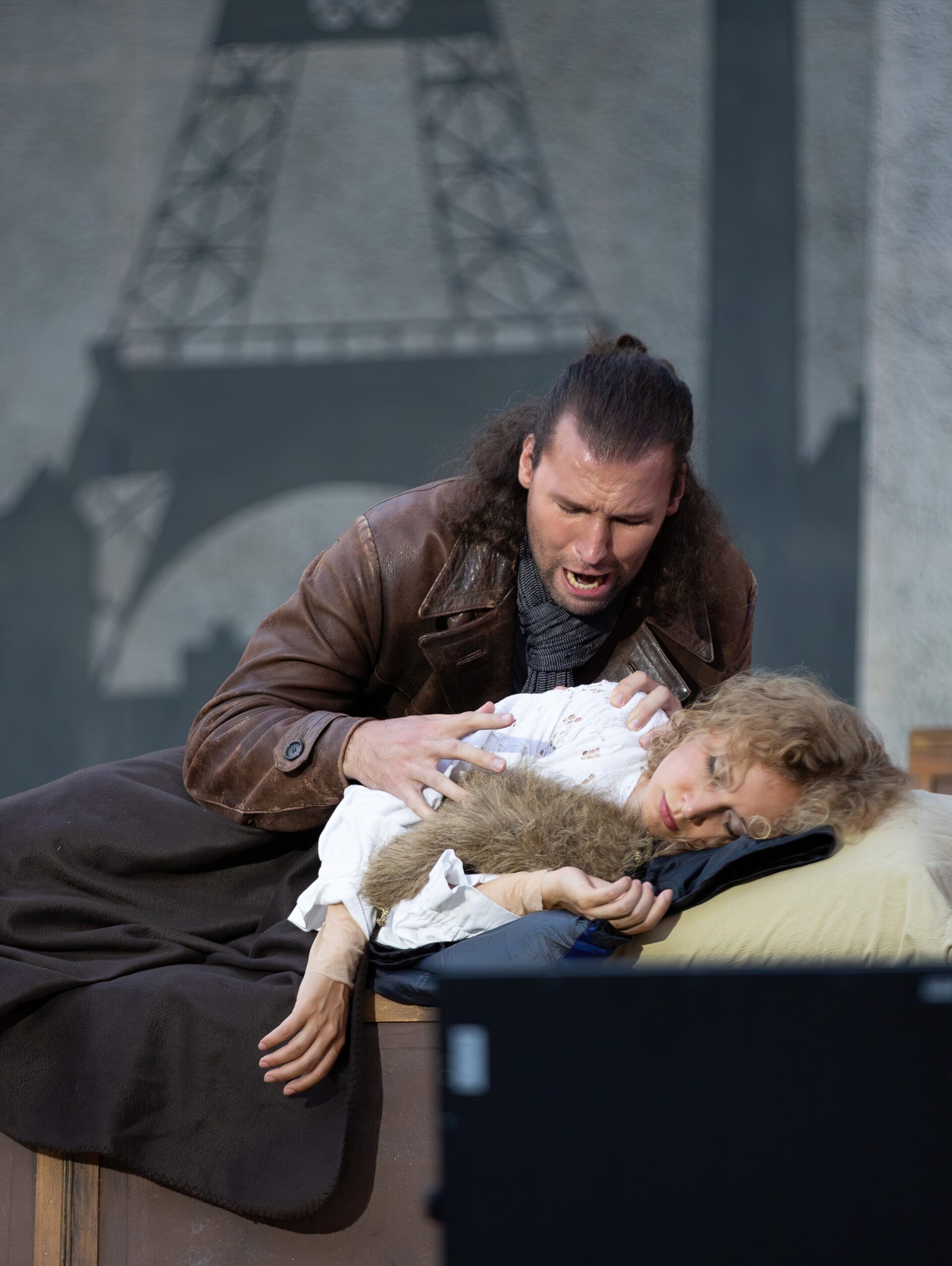
The Cunning Little Vixen
—

![]()
[…] then Alyona Rostovskaya, with her usually ready-to-defend, sparklingly radiant soprano, answers touchingly quietly and shyly: ‘Yes’. One of the most cautious confessions of love in opera literature.
Jan Brachmann, Frankfurter Allgemeine Zeitung
The Turn of the Screw
—
![]()
There is Heidelberg newcomer Alyona Rostovskaya. The governess of the young Russian soprano walks the line between cool blond avenging angel and helpless victim of two evil because damaged children. She also swings elastically (‘How beautiful it is’) up into the stratospheres of the b” (alone) in the ‘Tower’ scene, letting it glitter and shine without much vibrato or sharpness. A great, cultivated voice that will hopefully be carefully developed further.
Stefan M. Dettlinger, Mannheimer Morgen
![]()
This new governess, who takes up her post completely unsuspectingly, is sung and portrayed in Heidelberg by new ensemble member Alyona Rostovskaya with all due ambiguity. Her multifaceted soprano plumbs all nuances, her acting talent gives the complexity of this role an appropriate profile in each case. A bravura debut!
Mathias Roth, Rhein-Neckar-Zeitung
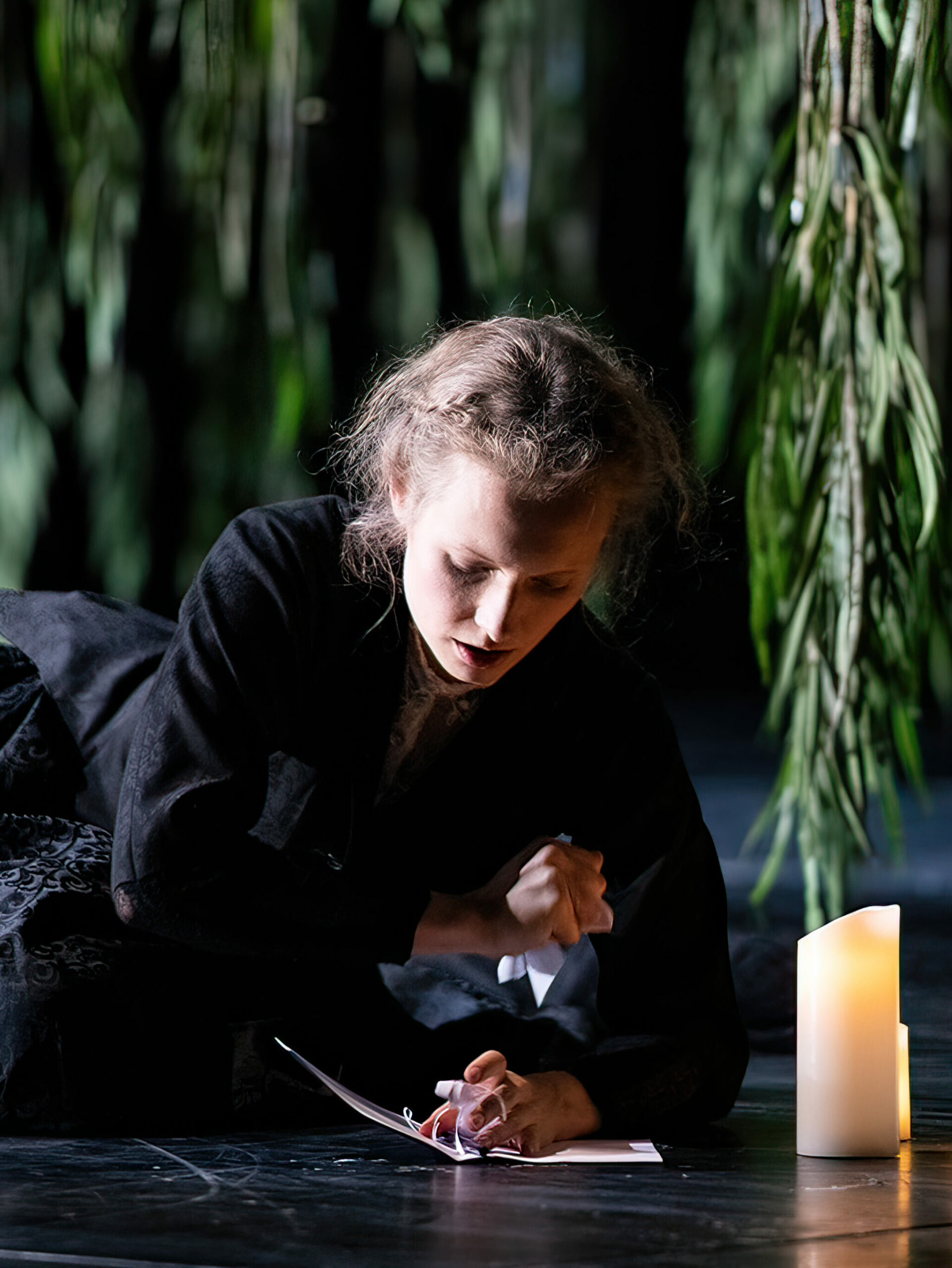
I Capuleti e i Montecchi
—
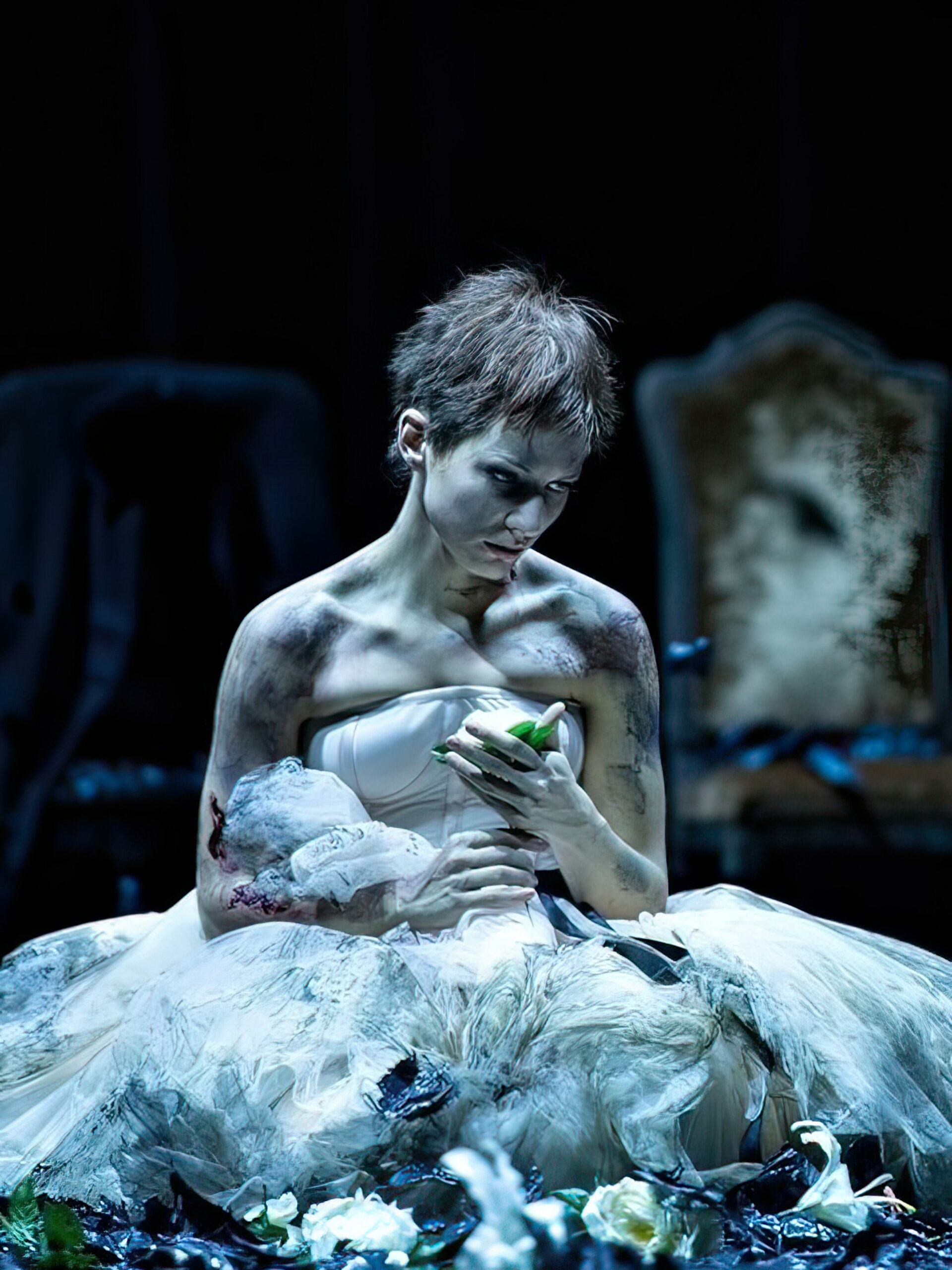
![]()
Alyona Rostovskaya, as the touching Giulietta, used her wonderfully soulful, soft-sounding lyric soprano with great stylistic bravura and good self-confidence. The high notes sounded free and, like the exemplarily placed piani, were harmoniously integrated into the wide carrying vocal lines without any breaks in register.
J.-M. Wernicke, Das Opernglas
Sea Symphony
—
![]()
The brilliant soprano Alyona Rostovskaya […] was a real asset with her effortless highs, her radiance surpassing even choral elements of the brilliantly sung, compositionally incredibly dense fourth movement of the 1st Symphony ‘A Sea Symphony’ by Ralph Vaughan Williams.
Alfred Kornemann, Der Patriot
